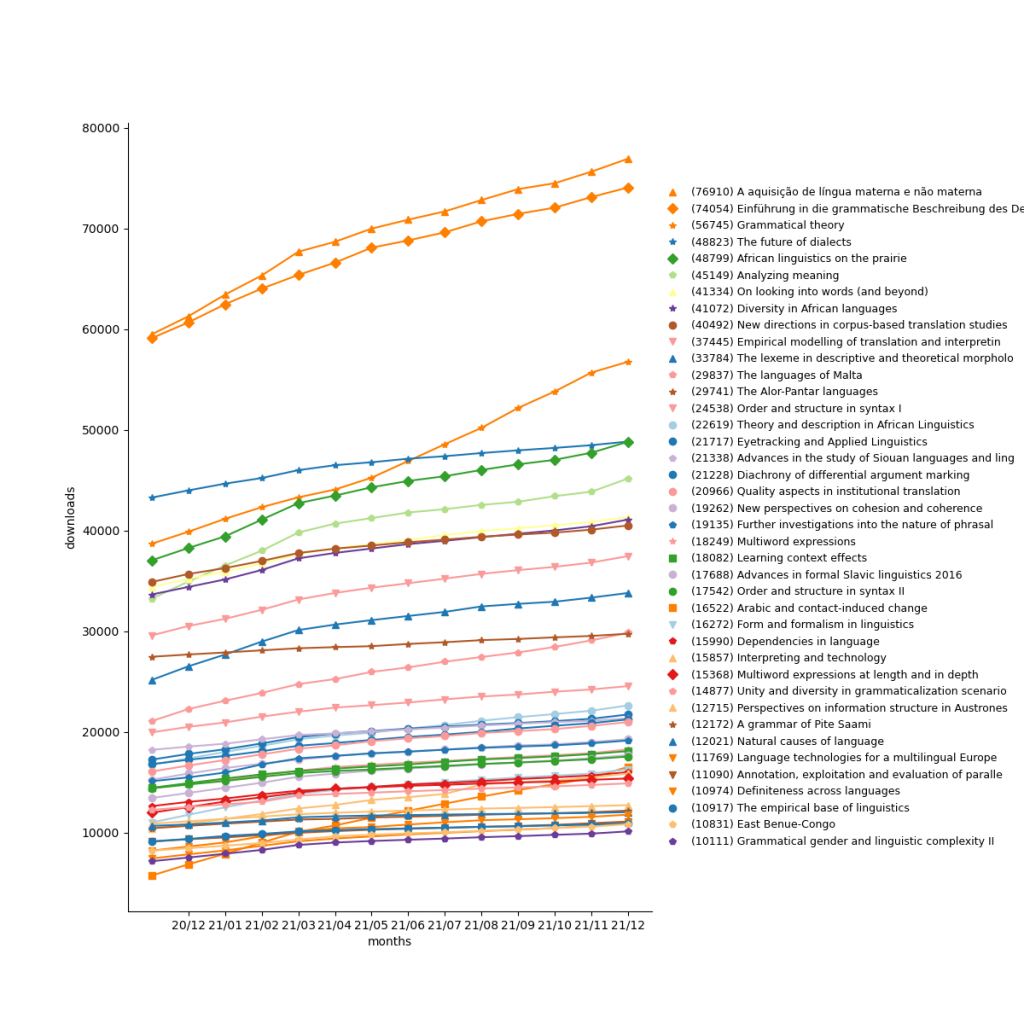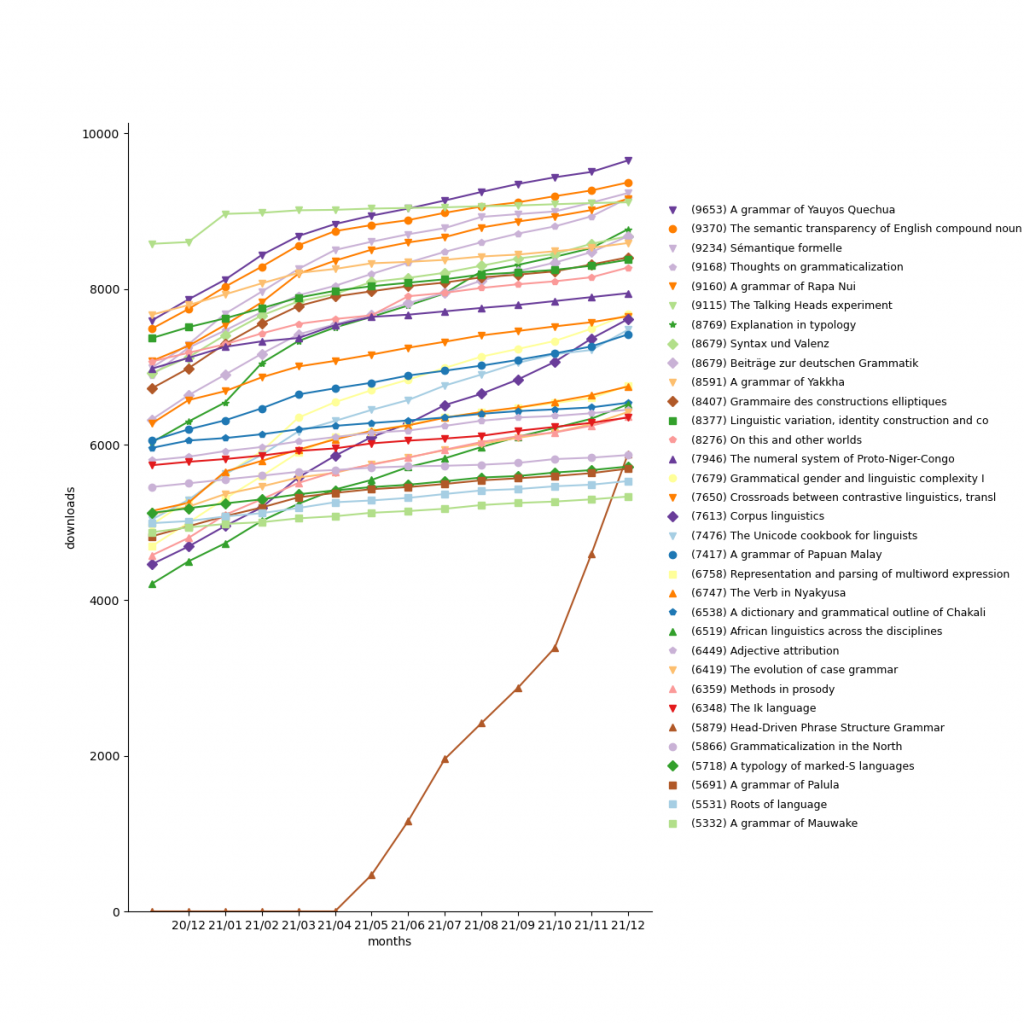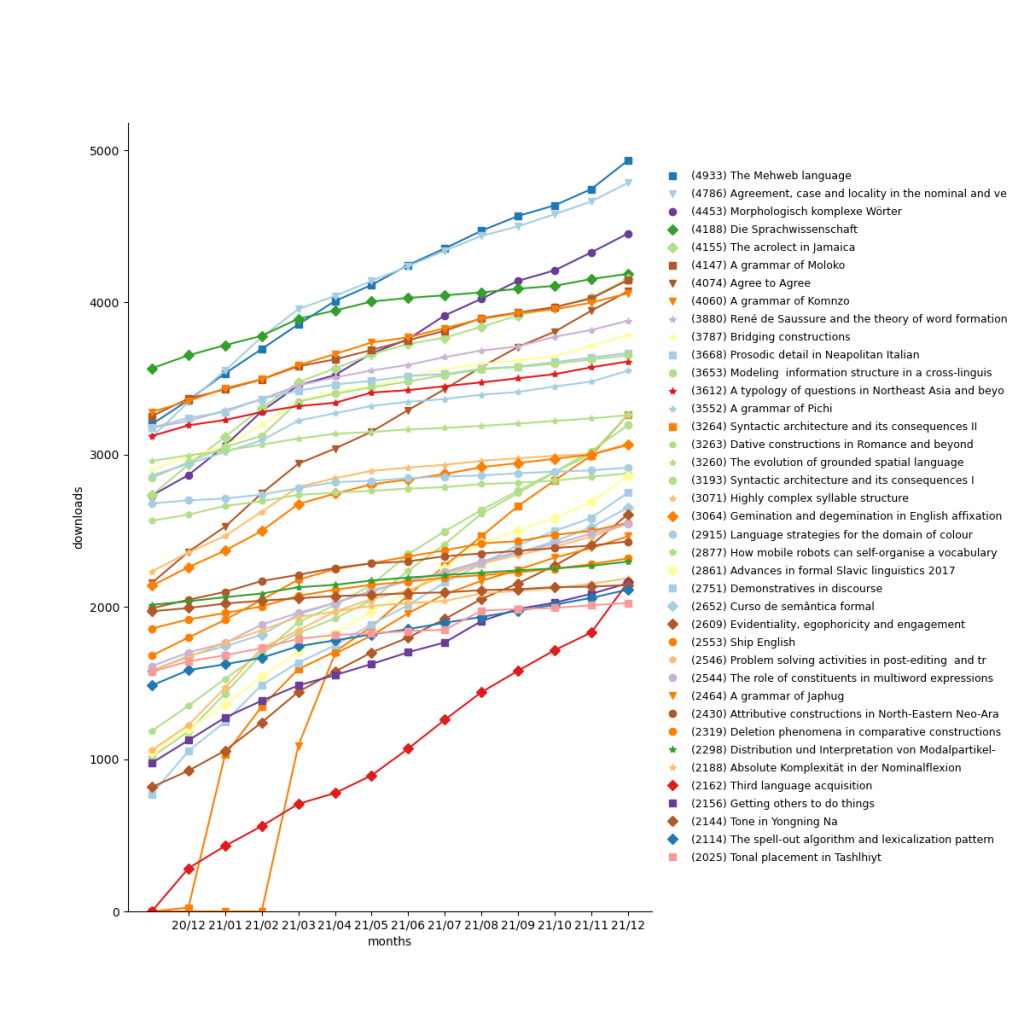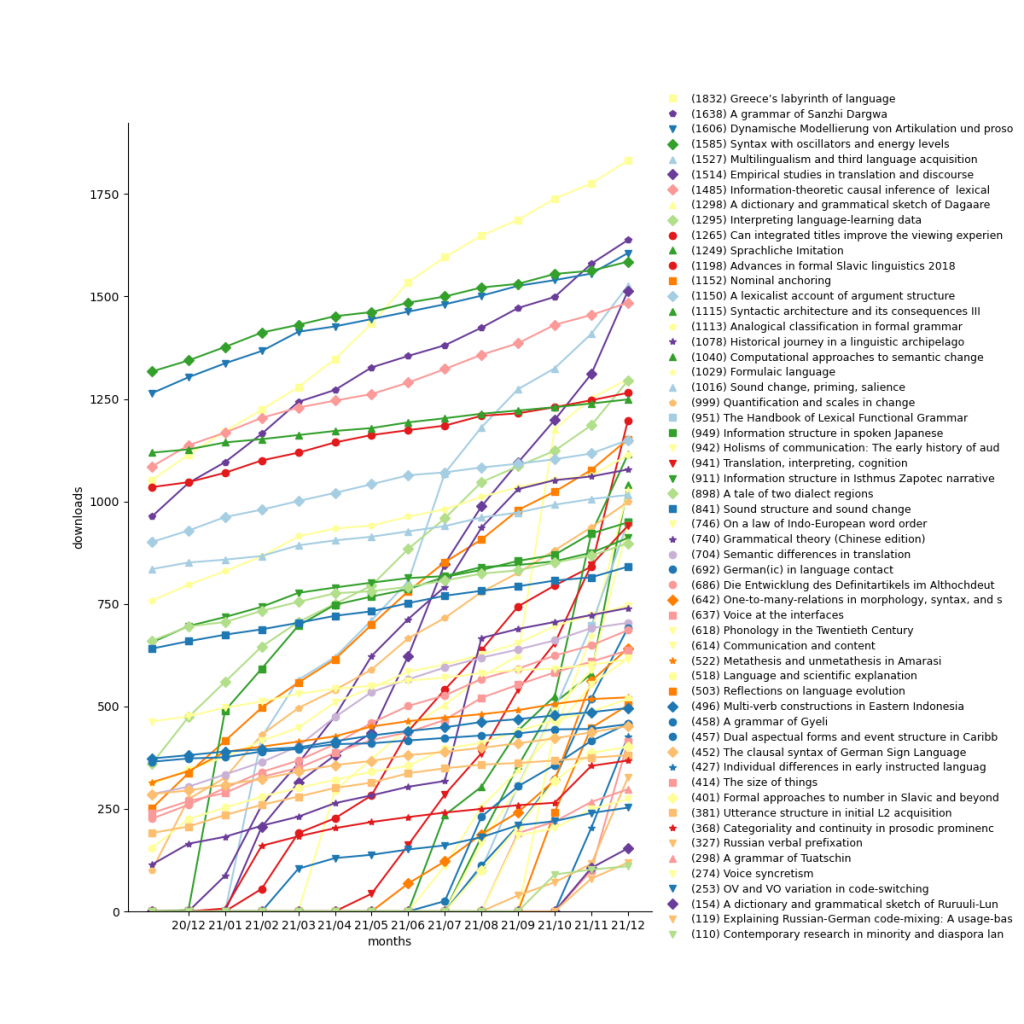We started our annual retrospectives in 2015 (2016, 2017, 2018, 2019, 2020). This is the seventh installment, for 2021.
Books and series
In 2021, we published 30 books
The shortest book is Reflections on language evolution by Cedric Boeckx with 76 pages. The longest book is Head-Driven Phrase Structure Grammar edited by Stefan Müller, Anne Abeillé, Robert D. Borsley & Jean-Pierre Koenig with 1632 pages. We are now also able to print multi-volume books. Head-Driven Phrase Structure Grammar comes in 5 tomes; A grammar of Japhug by Guillaume Jacques, with 1596 pages, comes in 2 tomes.
81 works were proposed to Language Science Press in 2020, for a total of 685. In 2020, 101 works had been proposed.

The following figure gives a breakdown of the distribution of these works and their states of completion
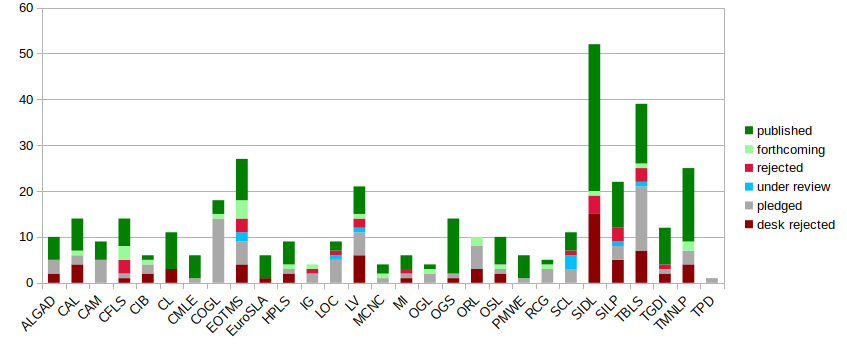
Series
There are currently 29 series (+2). Last year, Studies in Diversity Linguistics split into Research on Comparative Grammar and Comprehensive Grammar Library, and Advances in Historical Linguistics was accepted as a new series.
Reviewing
The median time from submission to decision is now 104 days (+7). The median time from submission to publication was 345 days (+88).
The acceptance rate (counting desk rejections) is 55.43% (+1.68) over all series. Only considering submissions where the proposal had been previously approved, the acceptance rate is 89.47% (+.76).
Downloads
In 2021, LangSci pdfs were downloaded 311,392 times (-158,456 compared to 469,848 in 2020), for a grand total of 1,461,297. This excludes downloads by search engine robots.
The most popular work is A aquisição da língua materna e não materna with 76,910 downloads, followed by Einführung in die grammatische Beschreibung des Deutschen (all three editions) with 74,054 downloads, and Grammatical theory (all four editions): 56,754 downloads.
Community involvement
Language Science Press is a community enterprise. We rely on the community for authoring and reviewing, but also for typesetting and proofreading. Across all published books, 273 linguists from all over the world have participated in proofreading. The most prolific proofreader is Jeroen van de Weijer, who has proofread chapters of 100 books.
There are currently 503 proofreaders registered with Language Science Press (+50).
For our 29 series, we are happy to be able to rely on 473 members in editorial boards from 49 different countries on 6 continents.
Paperhive
Of the books published in 2021, 24 went through proofreading on Paperhive. A total of 17,311 comments were left, for an average of 721. The book with the most comments was A grammar of Gyeli (1970).
The total number of books which have completed proofreading on Paperhive is 141. Total number of comments over all books is 95,832 (mean: 680, median: 643).
CO₂
Due to the pandemic, we did not travel, thus 0g CO₂ due to travel. We are still unable to quantify our electricity and heating CO₂ footprint.
Finances
We had a revenue of 134,857.56 € (+21,101.41 €) in 2021 and expenditures of 126,437.43 € (+5,760.51 €). The main cost items are personnel (96,173.71 €), service providers (20,158.30 €), rent (6,000.00 €), book copies (3,261.78 €), and gear (843,64 €). A total of six different employees of three different nationalities have received a salary from Language Science Press (none of them full time, and only two of them 12 months).
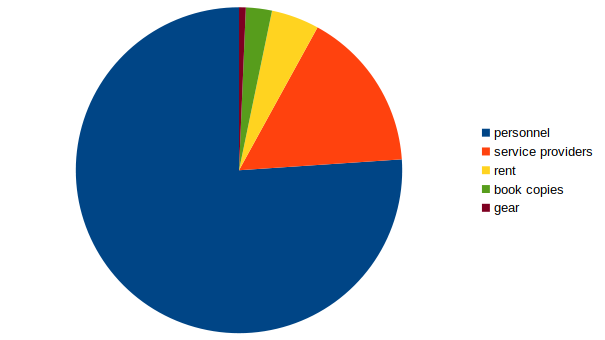
Our costs are a bit higher than last year, while the number of books published is again 30. Our cost per book is now 4,200 € where it was 4,000 € before. Note, however, that we had two books with more than 1,500 pages.
The lion’s share of our revenue comes from institutional memberships via Knowledge Unlatched (113,000 €). 13,598.98 € come from print margins, the rest is diverse.
Note that none of theses figures includes VAT.

